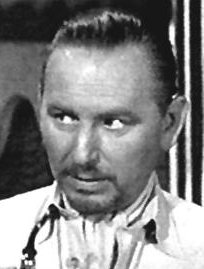Martin Grams’ The Radio Adventures of Sam Spade is the definitive guide to the Sam Spade radio series which became a post-War phenomenon that captured the public imagination and became the most-remembered of the hard-boiled private eyes before being brought to a premature end by anti-Communist investigations in the 1950s.
There’s quite a bit to Grams’ book. It includes a good summary of Spade’s literary appearances, the history of the radio program, and its actors and creative team, along with behind-the-scenes insights. This portion of the book takes up about 100 pages. This is typical for books on old-time radio programs where information about program production details was not nearly as plentiful in the 1940s as it is for modern programs, and stars of radio gave relatively few interviews. Still, what it lacks in quantity of information, Grams more than makes up for with quality. Grams has reviewed all the Sam Spade radio scripts, including many lost episodes. The book is peppered with scenes from the series’ catalog. This is very helpful for a series that remains quite popular despite eighty percent of the episodes being missing.
Grams also captures other details that you won’t find by researching the series on the Internet. For example, he details what exactly Sam Spade Star Howard Duff was accused of in the Red Channels anti-communist book.
Then the book also includes an episode with plot summaries for each of the series’ episodes. This is an incredible resource for Sam Spade fans who wonder what happened in all those lost episodes. While the log doesn’t quite have the detail of John Abbott’s The Who is Johnny Dollar Matter, Grams provides a good summary of the plot of each episode and calls out trivia about noteworthy episodes.
The book is not done, however. It delves into William Spier’s papers for some items of historical interest. There’s a one-and-a-half-page script for a promo for a never-produced series in which Sam introduces the world to his cousin Babe Lincoln and sets the stage for her mystery-solving adventures. Then we’re treated to an essay by producer/director William Spier on how he worked and managed his creative team.
Then the book throws in an unused audition script, “The Persian”, for good measure. It’s not a great script and is a bit derivative (thus why it was unused) but it’s not bad reading and makes for a nice bonus and item of historical interest.
The book’s only weakness is a couple of minor editing issues that won’t detract from the enjoyment of most readers.
Overall The Radio Adventures of Sam Spade is a solid, thoroughly researched book that’s obviously written with a lot of affection for the series. If you’re a fan who is left wanting more after listening to the surviving episodes, this is a book you’re sure to enjoy.
Rating: 4.5 out of 5
The Radio Adventures of Sam Spade is available on the author’s website.

